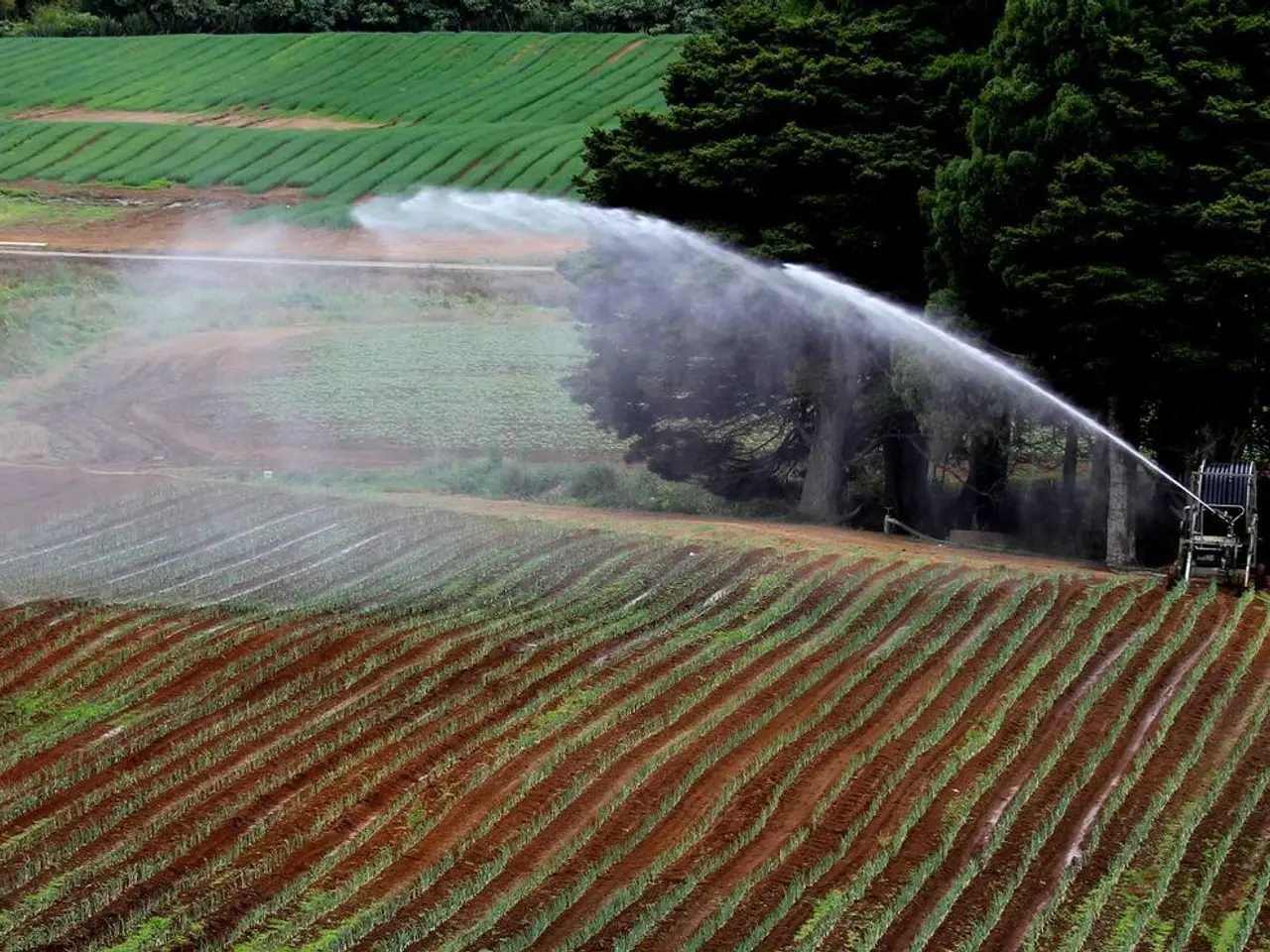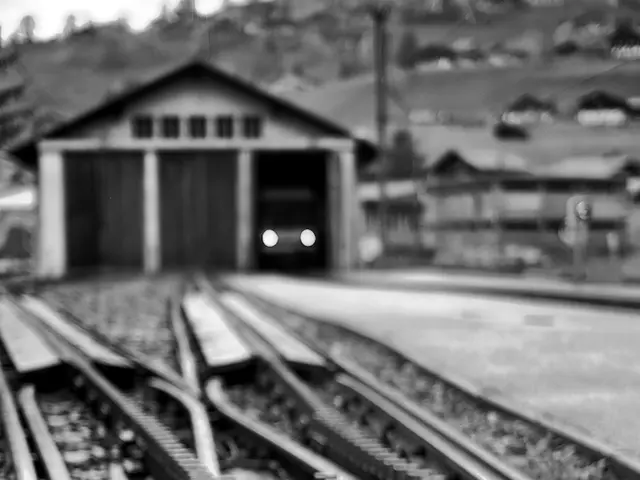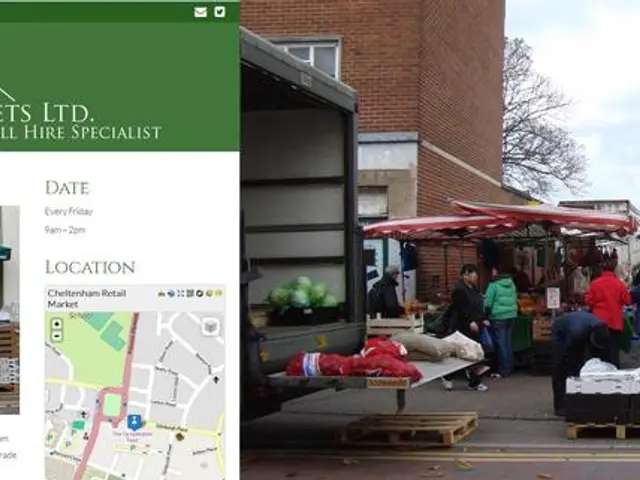Agricultural Land in Latvia Subtly Shaping Up as a Major Commercial Force
Investing in Latvia's Agricultural Sector: A Promising Opportunity
Latvia's agricultural sector is experiencing significant growth, offering a promising investment opportunity for those looking to expand their portfolios. With approximately 2 million hectares of agricultural land, making up nearly 35% of the national territory, Latvia boasts one of the highest agricultural land per capita ratios in the EU [1].
Over the past decade, agricultural land prices have risen by over 160%, averaging around €4,000 per hectare [1][2]. This consistent land value growth and rising investor interest reflect the sector's robustness. The number of farms has decreased by over 50%, while the average farm size and leased land per operator have grown, indicating consolidation and professionalization of the sector [1].
The consolidation trend is one that Baltic Terra, a fund investing in Latvia's agricultural market, specifically supports. By acquiring, repositioning, and operating land assets within Latvia's most promising regions, Baltic Terra contributes to the sector's growth by accelerating the market's shift from fragmented ownership to a more structured and commercially viable agricultural land market [1].
EU membership provides access to subsidies via the Common Agricultural Policy, further enhancing Latvia's attractiveness to investors [1][2]. Additionally, the sector benefits from fertile land, a strategic location for exports, and a transparent land registry system [1][2].
However, recent challenges have emerged due to adverse weather conditions declared a state of emergency until November 2025 [3][4]. Excessive rainfall, frost, and flooding have caused crop damage, unsown fields, and financial losses estimated at over €63 million. This emergency aims to expedite financial support and ease tax and loan repayment pressures on farmers [3][4].
Despite these challenges, the agricultural investment sector in Latvia remains robust. Baltic Terra plays a pivotal role in the country's agricultural investment landscape, facilitating the transition of agricultural land ownership towards larger, more commercial operators [1]. By bringing investment discipline and capital to a previously fragmented sector, Baltic Terra helps to professionalize the agricultural land market, effectively accelerating growth opportunities for modern agricultural enterprises [1].
Baltic Terra sources land through partnerships with private landowners, forest landholders, and municipalities. The fund focuses on reclassifying land (where needed), preparing parcels for cultivation or lease, leasing to vetted agricultural operators, managing the full legal, environmental, and subsidy compliance process [1]. Baltic Terra also has pre-market access to strategically located land, often at below-market pricing and with cleaner titles than auctioned properties [1].
In countries like Germany or Denmark, average farmland prices can exceed €25,000/ha, which is more than six times higher than in Latvia, suggesting significant headroom for growth [1]. As such, Latvia's agricultural appeal is supported by five key fundamentals: consistent land appreciation with potential for further growth.
Investors interested in joining Latvia's agricultural rise are invited to consider Baltic Terra. With its structured, fund-based model and regional sourcing, Baltic Terra offers a unique opportunity to be at the centre of Latvia's agricultural evolution, generating returns from long-term yield and capital appreciation, not asset flipping [1].
References:
[1] Baltic Terra. (n.d.). Invest in Latvia's Agricultural Market. Retrieved from https://balticterra.com/
[2] European Commission. (2020). Common Agricultural Policy. Retrieved from https://ec.europa.eu/agriculture/policy/cap-reform/index_en.htm
[3] Latvian Ministry of Agriculture. (2021). State of Emergency in Agriculture. Retrieved from https://www.zm.gov.lv/lv/latvijas-valsts-noyemi-latvijas-zemdega-sektora
[4] European Commission. (2021). Agriculture and Rural Development. Retrieved from https://ec.europa.eu/info/food-farming-fisheries/key-areas/plants-animals-food/rural-development_en
- By bringing investment discipline and capital to Latvia's agricultural land market, Baltic Terra supports the sector's transition towards a more structured and viable market, fostering a lifestyle that promotes sustainable farming practices and potentially high financial returns.
- As investors look to expand their portfolios, Latvia's agricultural sector, with its fertile land, EU subsidies, and continuous land value growth, presents an environment that combines investment opportunities with lifestyle choices, enabling a promising future in the agricultural domain.




